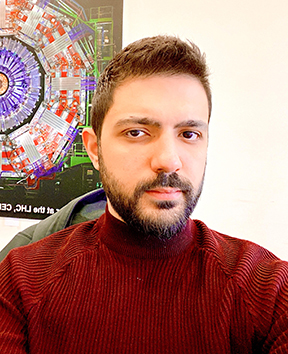CERN CMS Experiment: Revealing Exotic Physics
through Dijet Resonance Search
Ali Eren Simsek
Postdoctorate
The Catholic University of America
Physics Department
Wed, October 11, 2023 - 4:00 PM
The CERN Large Hadron Collider (LHC) is the world's most powerful particle accelerator, colliding protons at extremely high energies. One of the experiments at the LHC is the Compact Muon Solenoid (CMS), which is designed to detect a wide range of particles produced in the collisions. CMS is responsible for some of the most exciting discoveries in particle physics, including the Higgs boson, which was announced in 2012.
While CMS has already made some groundbreaking discoveries, it continues to search for new particles and phenomena. One promising avenue of research is the low mass dijet calo scouting search. This search focuses on identifying events where two low-mass particles, called jets, are produced in the collision and escape detection. By analyzing the energy distribution of the remaining particles, CMS can potentially detect the presence of new, exotic particles that have not yet been observed.
Recent results from the low mass dijet calo scouting search at 13 TeV interaction energy show promising signals, hinting at the possible existence of previously unobserved particles. These results, along with other ongoing research at CMS, demonstrate the importance of continued particle physics research and the incredible potential of the LHC and CMS experiment to unlock new discoveries about the fundamental nature of the universe.
If you have any questions about the Colloquium Series or would like to make a donation please contact the Physics Department, cua-physics@cua.edu or (202) 319-5315.
